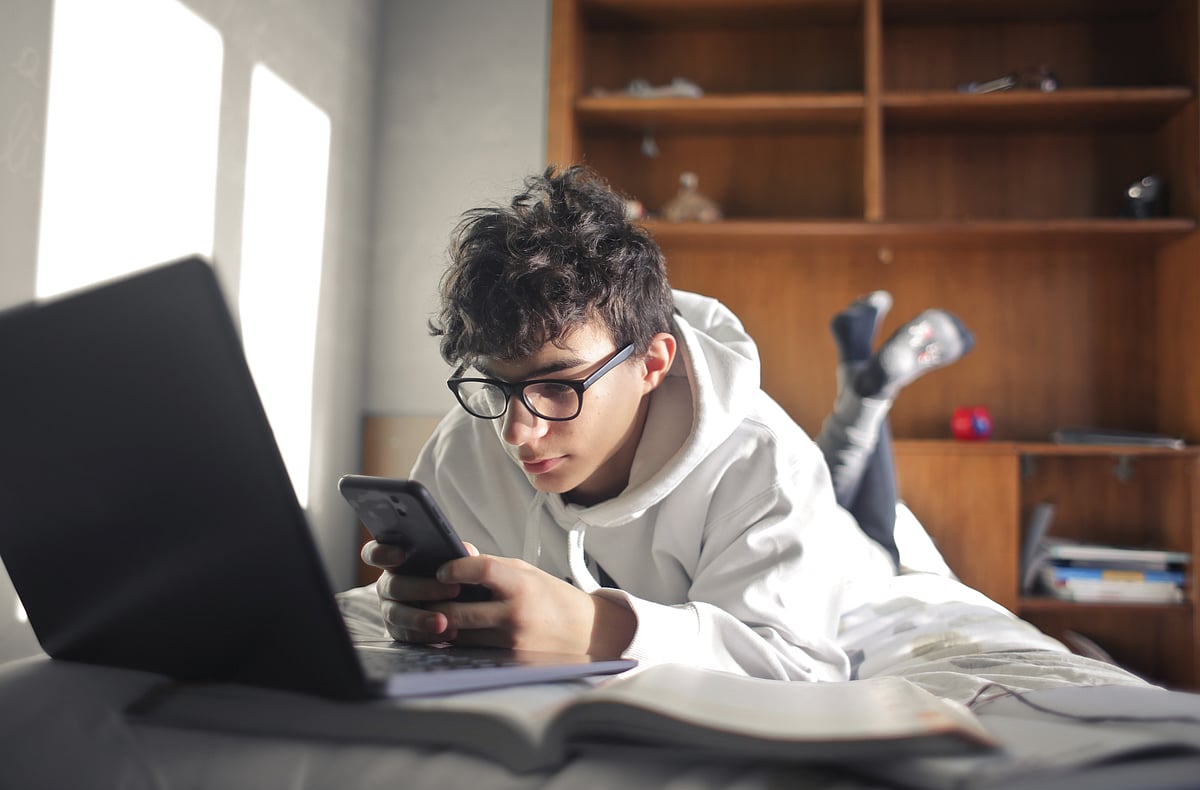Can smartphones trigger hallucinations in teenagers? Study reveals new alarming side-effects
Teenagers are experiencing intense emotions like sadness, fear and guilt

Ever wondered why your parents always blame your phone for everything that goes wrong? Turns out, there's a scientific reason behind it. A new study reveals that your phone could be responsible for more than just anxiety—it might even be causing hallucinations.
The research, conducted by Sapien Labs, surveyed over 10,000 teens in the US and India. It found that those who got smartphones earlier in life—especially by age 10—show signs of increased aggression, anger, and even hallucinations. The study highlights that younger teens, particularly those aged 13, are at a higher risk for deteriorating mental health due to early exposure to smartphones.
The study reveals a stark contrast in mental health between younger and older adolescents, with 13-year-olds experiencing significantly more distress than their older peers. Nearly 56 per cent of teens aged 13–17 are struggling, a sharp rise compared to only 20 per cent of adults aged 55+. The mental health crisis is particularly severe for female adolescents, with 65% facing emotional distress, outpacing their male counterparts at 48 per cent. Feelings of sadness, guilt, and fear are common, with half of these teens reporting that such emotions interfere with their daily lives.
The study reveals that adolescents, particularly 13-year-olds, are grappling with overwhelming feelings of sadness, fear, guilt, and detachment from reality, with over 50 per cent of teens reporting that these emotions disrupt their daily lives. In addition to these common effects, more severe consequences, such as aggression, hallucinations, and irritability, are especially pronounced in younger teens. The study links these troubling behaviours to early smartphone access, with 13-year-olds getting phones around age 10, leading to a more pronounced impact on their mental health compared to older adolescents.
Indeed, there is a strong correlation between heightened smartphone usage and compromised physical, cognitive activity in children, as Minu Matthews, a health psychologist and associate professor in psychology at Heriot-Watt University Dubai had earlier told Gulf News. Explaining the various array of issues she notes, "Sleep quality is also compromised, especially when screens are used right before bedtime, leading to mental arousal, disruption of the circadian rhythm, and overall poorer sleep quality. Socially, the excessive smartphone use inhibits children's ability to form genuine interpersonal connections, as they struggle to engage in meaningful interactions outside the digital realm," she says.
Earlier research has found deep links between disturbed sleep habits and the prolonged screen-time. According to a 2022 UK-based academic review of 36 correlational studies, the heavy use of screen media was associated with shorter sleep duration, longer sleep latency and more mid-sleep awakenings. Those who were sleep-deprived, had poor concentration, and lower retention of information, compared to those who had an uninterrupted eight hours of sleep at night.
So, how do you combat this challenge?
Monitor screen time: Limit smartphone usage, especially for younger children. Encourage other activities like outdoor play, reading, or creative hobbies.
Foster open communication: Encourage children to talk about their feelings and struggles to help them process emotions like sadness and guilt.
Set healthy boundaries: Establish phone-use rules to avoid excessive screen time before bed or during critical study periods.
Be careful about early access: Consider delaying giving children smartphones until they are more mature to handle the emotional impact of social media and digital interactions.
Sign up for the Daily Briefing
Get the latest news and updates straight to your inbox
Network Links
GN StoreDownload our app
© Al Nisr Publishing LLC 2026. All rights reserved.